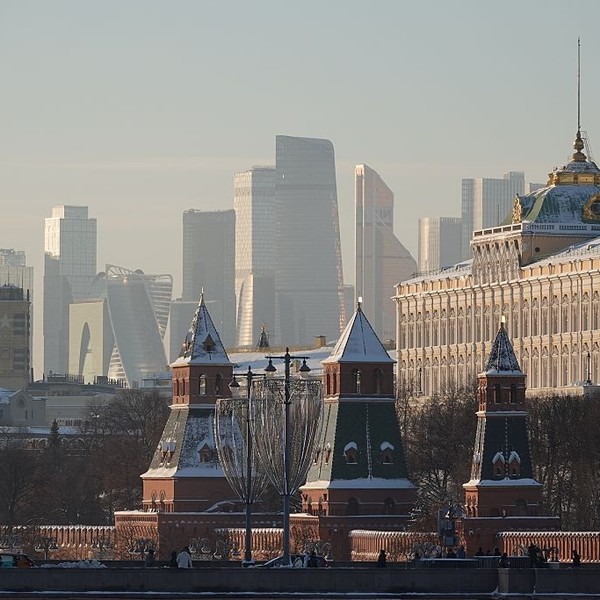Speaking to the Russian Federal Assembly in March 2014, Russian President Vladimir Putin defended his country’s annexation of Crimea and forcefully presented his national security strategy to gain the upper hand in Russia’s rivalry with the United States.
He blamed the U.S. for seeking regime change through “color revolutions” and the “Arab Spring.” Emphasizing Ukraine was only the most recent site of confrontation between Russia and the West, Putin accused the West of mounting a Cold War containment strategy, restricting Russia’s economic growth and threatening its security.
He emphasized Russia “has its own national interests that need to be taken into account and respected.” A master of obfuscation, Putin - in this case - was deliberately clear.
We should have been prepared for the full throttled Kremlin espionage campaign against our democratic institutions leading up to and during the 2016 presidential campaign, but we weren’t.
Under Putin’s leadership during the past two decades, Russia has been the resurgent aggressor not only in its former Soviet sphere of influence, but also in South Asia, the Middle East, Latin America and Asia.
Relentlessly focused, as early as his 2014 Crimea speech, on a strategy for managing Russia’s March 2018 presidential elections, Putin sought to marginalize his domestic opponents by falsely declaring them a fifth column doing the bidding of Russia’s external nation state enemies led by the United States. Putin considers the U.S. an existential threat to Russia’s national security, not because of NATO’s ostensible military threat – which Putin purposely exaggerates – but because Western ideals of liberty, freedom and democracy might spread to Russia and break Putin’s grip on the Russian state.
This is why Putin’s strategy involved discoverable influence operations against former National Security Advisor General Michael Flynn and former Trump campaign manager Paul Manafort.
In December 2015, RT, formerly known as Russia Today, paid Flynn to make a speech in Moscow. Surely by design, Russian press coverage highlighted Putin sitting next to Flynn. The Kremlin sought to build a level of credibility for RT with U.S. and international audiences by showcasing the former director of the U.S. Defense Intelligence Agency in advance of using RT as Russia’s propaganda arm and facilitator of Kremlin influence themes during the 2016 election campaign.
Putin could not have predicted a Trump victory, but once Flynn was named national security advisor designate, Putin likely welcomed exposure of RT as it would soil Flynn’s reputation in the process.
The Kremlin deliberately added a measure of conspiracy by enabling meetings between Flynn and Russian Ambassador Sergei Kislyak. Putin artfully recalled Kislyak shortly after the election to make Kisylak’s meetings with Trump campaign and administration officials even more mysterious. While Russia alone was not responsible for all of Flynn’s legal problems, Putin can take credit for helping spark the investigation in the first place.
Ultimately, Russia’s goal was for the Trump Administration’s national security team to be disabled from the top down.
Russian intelligence had likely had its eyes and ears on Manafort as far back as when Manafort was a campaign advisor for U.S. Presidents Reagan, Ford and H.W. Bush. No matter that Manafort lobbied for Kremlin friend, former Ukrainian President Viktor Yanukovich and was involved in business dealings with Putin ally Oleg Deripaska.
The Kremlin would have seen great value in raising Manafort’s profile and targeting him with a discoverable influence operation: the conspiratorial, infamous June 9, 2016 Trump tower meeting with the troika of Kremlin-connected Russians. Putin would have been aware of Manafort’s vulnerability to allegations of corruption. Exposing corruption connected with the U.S. presidential campaign would be a high priority for Putin, whose opponents have risked their lives to protest Kremlin corruption going back to the days of Russian President Boris Yeltsin.
Russian and Soviet modus operandi – especially when confronted with Kremlin human rights abuses – has always been to respond with counteraccusations. A Russian intelligence officer once told me, “if you have a nice American house and my Russian house is dilapidated by comparison, then I’ll just burn your house to the ground so we can be miserable together.”
In the 2014 Crimea speech, Putin derided the U.S. for its perceived “exceptionalism.” Heading into the March 2018 elections, Putin’s strategy will be based on deflecting his Russian opponents and Western critics: if you allege Kremlin corruption, Putin will argue that you should look critically at the United States, throwing stones from glass houses in their exceptional “city on a hill.”
Russian print and TV news are closely covering the Manafort, Gates, Flynn and Papadopolous stories and at this point labeling them as “scandalous.” We can expect the Russian influence campaign to heat up as Putin’s “election campaign” accelerates into full swing. The Kremlin will direct influence themes targeting the U.S. political system and those U.S. officials accused of wrongdoing as Putin takes aim at his domestic opponents by attacking Western officials and institutions.
We might start with a lesson from Manafort’s and Flynn’s experiences; to beware of Russians bearing gifts. We should also harden our cyber defenses so that we better protect social media and networking sites, which have become critical infrastructure and a backbone for our modern democratic process.
Most of all, we will need to demonstrate what truly separates us from Russia – the rule of law. Putin and those in his coterie who are guilty of massive corruption enjoy their ill-gotten gains at the expense of the citizens whom they exploit rather than serve. It is imperative U.S. Special Counsel Robert Mueller carry his work to the finish so that in addition to exposing fully Russia’s nefarious activities against Americans, taking appropriate measures to defend ourselves better, and punishing the Kremlin, we hold our citizens accountable for their actions according to the law.














